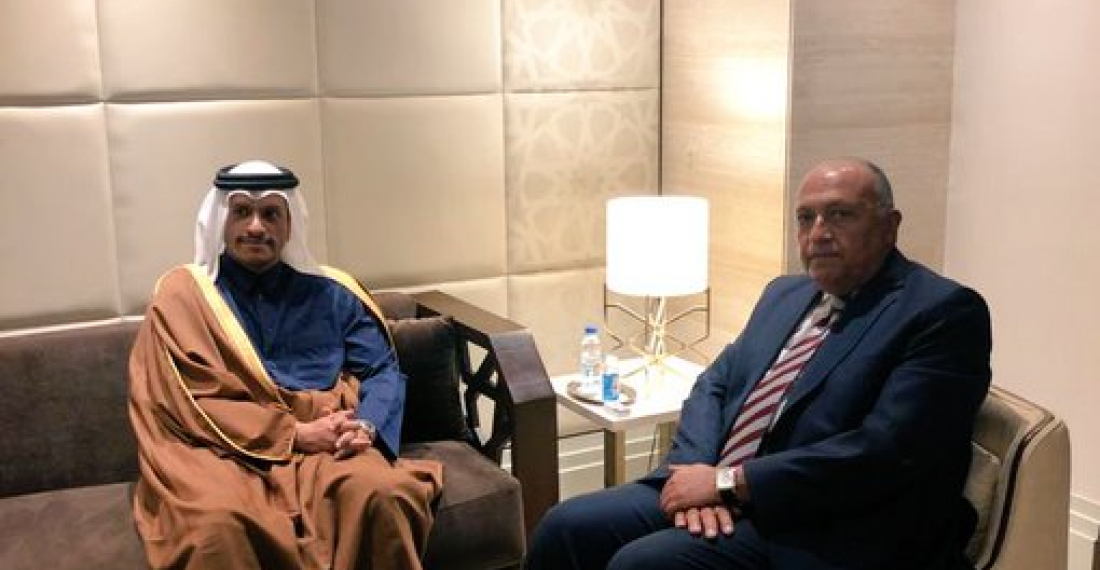The Qatari foreign minister, Sheikh Mohammed bin Abdulrahman bin Jassim Al Thani, visited the Egyptian capital, Cairo, for the first time since a three-year rift between the two countries ended in January.
Al Thani visited Cairo as Qatar chaired the 155th ordinary session of the Arab League Council at the level of foreign ministers. On the sidelines of the session, Al Thani met with the Egyptian foreign minister, Sameh Shoukry. The two countries signed a reconciliation agreement in January ending the rift.
On 23 February, official delegations from both countries met in Kuwait to discuss the mechanisms needed to enhance future joint work needed to implement AlUla agreement.
Egypt stressed that it is imperative to strengthen Arab actions and support relations between countries across the region. It added that this will be based on the concepts of goodwill and non-interference in the internal affairs of other countries.
Earlier this year, Egypt reopened its airspace to Qatari flights after a ban of more than three years.
The Qatari Foreign Minister said that his country seeks to restore relations with Egypt to their natural warmth, and for them to be good and solid.
The Gulf writer and researcher, Dr Adel al-Abdullah, described what is happening as a "test of intentions within a political framework."
Al-Abdullah said that in light of the differences in views on many political issues, there will not be a full normalisation, at least for this year." He added that the whole region is going through conditions that make it difficult for each country to maintain its previous policy.
As for Egypt, Al-Abdullah said that Cairo will build its diplomatic relations aside from any pressures but rather on its interests.
Regarding whether this rapprochement with Qatar is related to an openness towards Turkey, Egyptian parliamentarian and politician Mohi Issa said, "The general regional and international climate requires the Egyptian regime to cool down differences with everyone, especially Qatar and Turkey, since the regime believes that the new American administration may constitute great pressure. Accordingly, it is not likely to open other fronts."
Egypt is currently concerned with the issue of the Renaissance dam file, where negotiations with Ethiopia have not been particularly fruitful.
On the other hand, political analyst, Izzat al-Nimr, said that the visit of the Qatari minister cannot be described as a significant event given that the meeting came on the sidelines of an Arab League meeting. He described the meeting as a sign that relations between the two countries are moving from a state of hostility towards a state of protocol relations and diplomatic statements, with many severe disagreements between Egypt and Qatar remaining.







